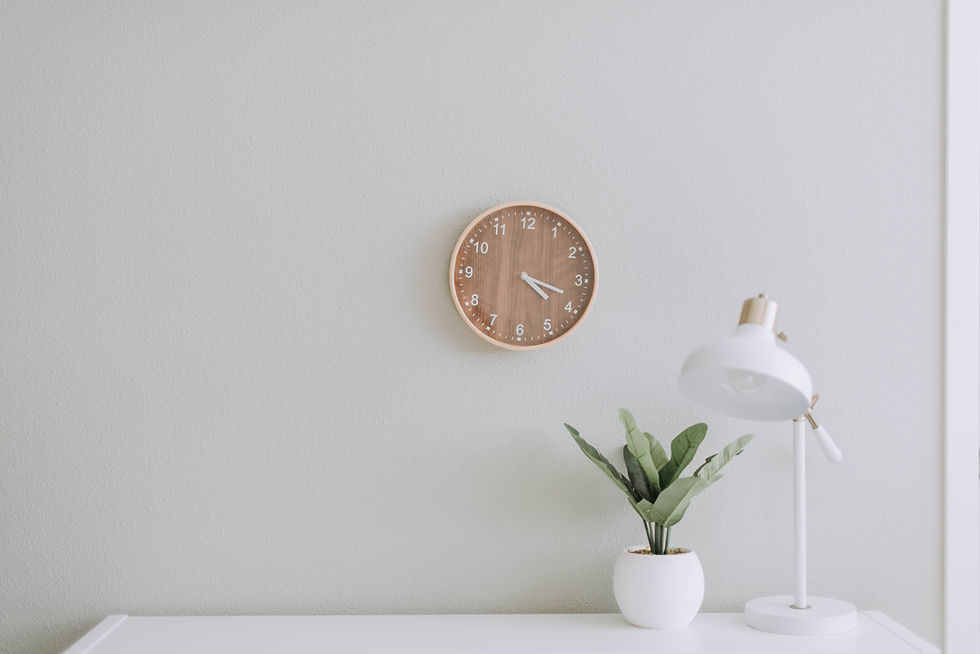Self-Care and Nom Nom
- WHV

- Apr 11, 2021
- 3 min read

Food is a loaded topic for many. In our society we have to work hard to have a healthy relationship with food. And when it comes to self-care, food definitely plays a role with or without our permission. How we handle food can actually be a pretty good barometer for where we're at in our self-care regimen. If you recognize that you frequently use food to deal with stress, or you're not very mindful about your food choices, then it's fair to say there's a chance you're not fully engaged in promoting your self-care. If you struggle with understanding what moderation means, or struggle with setting those limitations, you may need to address your relationship with food.
The reason why food can be an important part of self-care is that food can be abused for those quick self-care fixes. Snacking while stressed, having an extra piece of cake because of whatever reason you justify, are all signs that you're using food in the wrong ways to meet self-care needs. And while this helps in the immediate moment, it's obvious that if used in the extreme, this form of self-care turns into self-sabotage. Eating excessively or eating excessive junk food and processed foods--the best tasting foods really it seems--can in turn cause you to feel physically less well and impact your mental resilience. You might feel more tired, cranky, or have increased cravings for these same indulgent foods, struggle with saying no to food, struggle with not needing food all times during the day. Using food, especially unhealthy food, to deal with stress can have a snowball effect. This is why some see this behavior as a food addiction--you'll need more to deal with the same level of stress the more you use food as a coping mechanism.
Basic self-care surrounding food is to look at food as nutrition and fuel. This is a tough mindset to change to and it doesn't happen overnight, but it can start with small habits. Instead of going fully unprocessed, raw, and on half the calories you currently do, what would be a way to start small? Here are some suggestions:
Make one meal a week unprocessed
Replace sweets with a fruit before going for dessert
Drink water after a meal or snack, wait 20 minutes to see if you're still hungry before going for seconds
Learn to recognize feelings of hunger and fullness
Identify the automatic thoughts you have about the food you're eating ("this won't be enough" "I won't like it")
Find a food coach or food app that can help you keep track of food--look at your current habits before trying to change any
Learn a new recipe with a new veggie you don't usually eat
Use tea or fat free hot chocolate as a treat instead of snacks
Baked chips make a difference compared to fried!
Make sure you eat before you're starving, not when you're starving.
There are tons of resources, research, and services available for people trying to gain traction in their relationship with food. Some basic guidelines when doing your own research:
Don't buy into anything that feels like a fad, aka, anything that focuses on over-restriction, or cutting out a whole macronutrient that your body really needs. Keto can be okay if that's what your body needs, but make sure you do your research and talk to some experts. Keto, plant based, all of these may not work for everyone.
Find different ways to track success and still treat yourself.
Make sure the research is evidenced based. If you need to talk to your doctor or a nutritionist to get feedback, feel free to set up that appointment!
Stay flexible. Many times it's easy to get caught up in one philosophy about food, only to be steamrolled by a new philosophy about food that also makes sense but contradicts with what you have already known to rely on. Food is not a religion, it's okay if people do things differently, and it's okay if you have to change your general beliefs about food.
Meal planning should be realistic. Whatever the food planning requires, you should be able to regularly cook it, prep it, be satisfied by it, without killing yourself over it.
Food can be a sacred, intimate part of our daily lives. Don't let it fall off to the wayside as a nurturing part of your daily self-care. Food also becomes a hot topic for some, and a source of guilt and shame. Guilt and shame can be healthy feelings, but don't let food or poor food choices put you down a spiraling path. Remember to reconnect with your humanity and imperfections, and then get back on track.
Share your best food and self-care tips in the forum! Or if you're needing support, ask others what their best meal-planning hacks are!



Comments